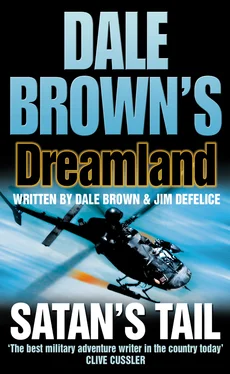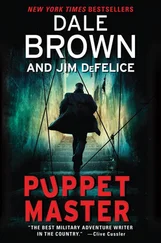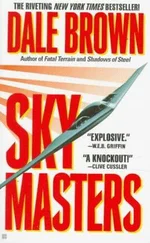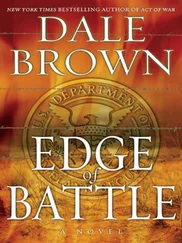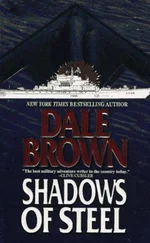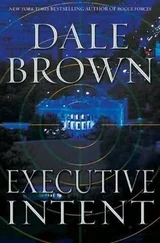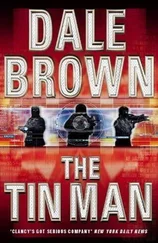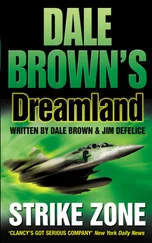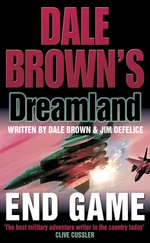1 ...7 8 9 11 12 13 ...20 Captain Danny Freah walked past the row of video slot machines and turned left into the large baggage claim area. The flight from New York had landed a few minutes ago, and passengers were just starting to filter in. As Danny walked toward the carousel, a short man in a gray suit approached him from the side.
‘You’re Captain Freah, I’ll bet,’ said the man.
‘Danny Freah, yes,’ said Freah. ‘Lee?’
‘That’s me,’ said the man, Lee Rosenstein, pumping Danny’s hand. ‘I thought you’d be in uniform.’
‘I’m off-duty,’ Danny told him.
‘Well, good. You deserve some time off after all you’ve been through,’ said Rosenstein. ‘Let me just grab my suiter. I see it coming around the bend.’
Rosenstein darted toward an opening in the crowd and grabbed a black suitcase with a multicolored twist of yarn around the handle.
‘Clever,’ said Danny, pointing at the identifier as they walked toward the exit.
‘Until it falls off,’ said Rosenstein. ‘Usually I get to carry it on, but the gate person couldn’t be bribed.’
He smiled, which Danny figured meant he was kidding about the bribe. Without breaking stride, Rosenstein reached to the outer pocket of the suitcase, zipped it open, and retrieved a Mets cap, plopping it on his head. It clashed a bit with the black suit.
‘Been a while since I was in Vegas,’ added Rosenstein as they reached the hallway. ‘Not since March or April.’
‘I took a taxi. They’re this way,’ said Danny. Rosenstein had already started to the right, where a line snaked around a set of ribbons on the sidewalk.
‘Man, it’s beautiful weather. Was raining and about thirty-six when I left New York this afternoon.’
‘It’s a little warm for this time of year,’ said Danny.
‘Let’s go right to Venezia,’ suggested Rosenstein. ‘I’ll check in, then we’ll catch some dinner.’
‘Sounds good.’
‘I was thinking of Delaman’s to eat. Supposed to be the best restaurant between San Francisco and New York,’ said Rosenstein. ‘I don’t know if that’s true, but the last time I was there it was pretty good. Hey, don’t worry about paying, Captain – this is on my dime.’
‘I wasn’t worried,’ said Danny. He wouldn’t have known Delaman’s from a diner, but now felt embarrassed at the other man’s suggestion that he would pay. ‘We’ll go fifty-fifty.’
‘First thing you have to learn as a candidate for Congress,’ said Rosenstein, ‘is when to let other people pay for your dinner and when not. This is a time you let other people pay. Enjoy it while it lasts.’
‘I don’t know that I’m running for Congress,’ said Danny.
‘Everybody says that.’ Rosenstein smiled. ‘All the more reason to let me pay.’
Zen hunched over the control panel, watching the computer simulation of the small aircraft’s maneuvers as it ran through a mock bombing run. Flown entirely by the computer, the aircraft managed to duck two antiair laser shots as well as an old-fashioned but still deadly flak barrage as it approached the enemy radar station. It then took a very hard cut right – the angle looked to be nearly forty-five degrees – as it tossed the five hundred pound bomb. The bomb, loosened from the underside of the robot aircraft just at the start of the maneuver, skipped through the air and landed about two meters from its target, the radar van that had been controlling the antiaircraft installation. As the simulation continued, the robot aircraft spun back down toward the ground, recording the damage its bomb had done.
‘The concept definitely works,’ said Zen, pushing back from the panel. ‘In the computer, at least.’
‘If it works on the computer, it’ll work in real life,’ said Jennifer Gleason.
‘I’m not debating that,’ said Zen. ‘I just don’t see how it’s worth it moneywise to turn the U/MFs into bombers. A guidance kit on a dumb bomb is a heck of a lot cheaper. And having a real airplane gives you a heck of a lot more flexibility.’
‘I don’t do philosophy,’ said Jennifer. ‘Just computers.’
Zen was in charge of the Flighthawk U/MF-3 project, a responsibility that included not only the present generation of high-speed robot interceptors but also the next generation U/MF-4, which had just flown the simulation. The U/MF-4 was a small, slightly faster aircraft that incorporated everything they’d learned from using the Flighthawk in combat over the past two years. It could remain airborne at least twice as long without refueling, and would be able to operate approximately fifty miles from its mother plane. Its autonomous mode – the developers’ fancy word for flying on its own – was much improved, thanks largely to the refined onboard tactics library developed from the battles Zen had flown with the U/MF-3s. It could also carry a heavier payload, a capacity intended not for bombs but rather a lightweight though powerful chemical laser, which so far had not made it past the conceptual stage.
All in all, the U/MF-4 was a better aircraft than the U/MF-3. But was it better enough to justify the billions of dollars it would take to field a fleet of them?
If it could be used as an attack aircraft as well as an interceptor, maybe – at least that was the thinking at the Pentagon, which had urged the bomb trial.
Urged as in ordered, with a bit of politeness and necessary decorum thrown in. Zen hated Washington politics, but it was a necessary part of life here.
And not just his. Of the three men and two women currently assigned to the sketch phase of the project, at least two would be let go if the U/MF-4 project were put completely on hold. They were all highly skilled workers, engineers who at least in theory ought to have no problem finding another job. But theory and reality didn’t always match. And the stakes would be a hundred times greater at the next stage.
‘I can have the simulation transferred to video for you by tomorrow morning,’ said Jennifer.
‘Thanks.’ With everything squared away, Zen went up the ramp to the elevators and then out through the large Megafortress hangar that had been cut into the Nevada desert like an oversized curbstone. The warm air – it was a balmy eighty degrees – felt good after the filtered and AC’d bunker air he’d been breathing the last few hours.
‘Hey, Major, how’s it going?’ asked Captain Michael Latrec as Zen rolled toward the Taj. Latrec was a flight surgeon – an Air Force doctor whose specialty was dealing with flight crews and the sometimes peculiar effects of air travel. He probably spent as much time dealing with the common cold as anything else, but then again, a runny nose at Mach 3 and 65,000 feet could hardly be called common. ‘You believe this weather?’
‘Love it,’ said Zen.
‘It’ll snow tomorrow, watch.’
‘Probably.’
‘How’s Mack?’
‘I busted his chops pretty bad,’ said Zen.
‘You did? You busted on him?’
‘Nah. I just pushed him, like I said I would.’
‘You don’t have to ride him,’ said Latrec. ‘More like encourage him. Get him to work out, keep at it, that kind of thing.’
‘That’s what I’m doing. You sure it’s all in his head?’
‘No. I didn’t say it was all in his head. He definitely sustained injuries. It’s just – he may need encouragement to keep going. You were encouraged, and I thought you could give him the same motivation. Been there, done that, that sort of thing.’
‘I’m working on it, Doc.’
‘Mack probably appreciates it.’
‘That’s not going to happen,’ said Zen. ‘Unless he gets a brain transplant.’
‘I think you’ll be surprised,’ said Latrec. ‘Going through something like this …’
Читать дальше
